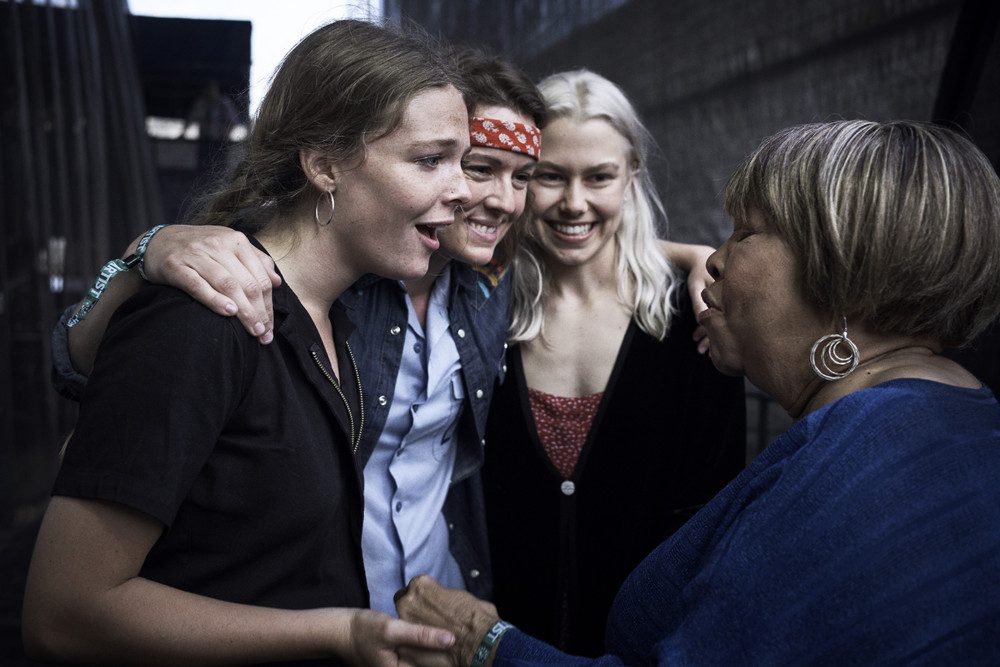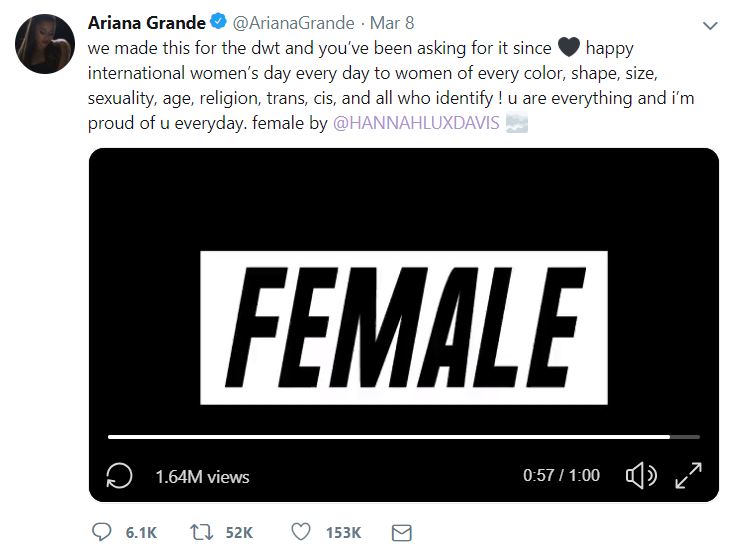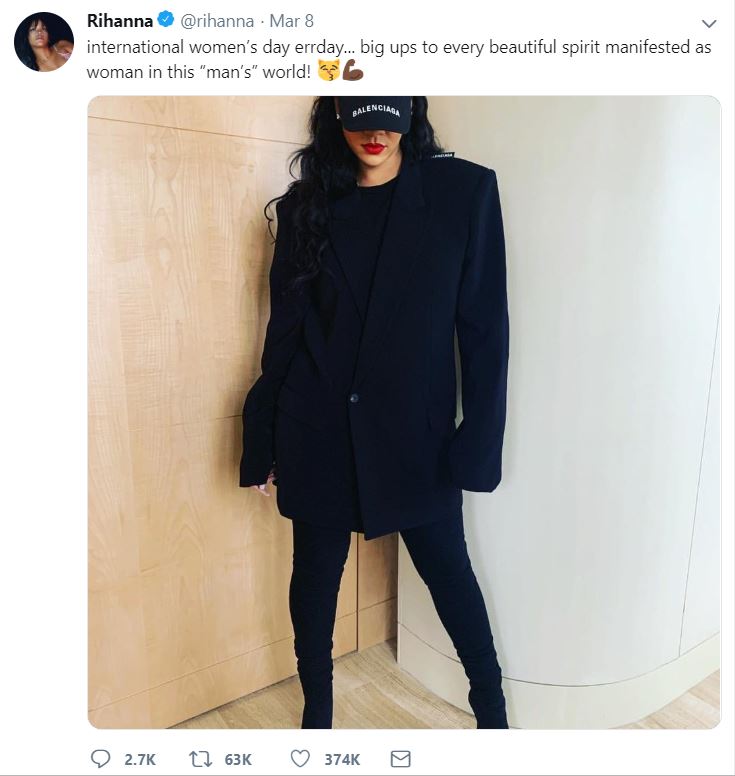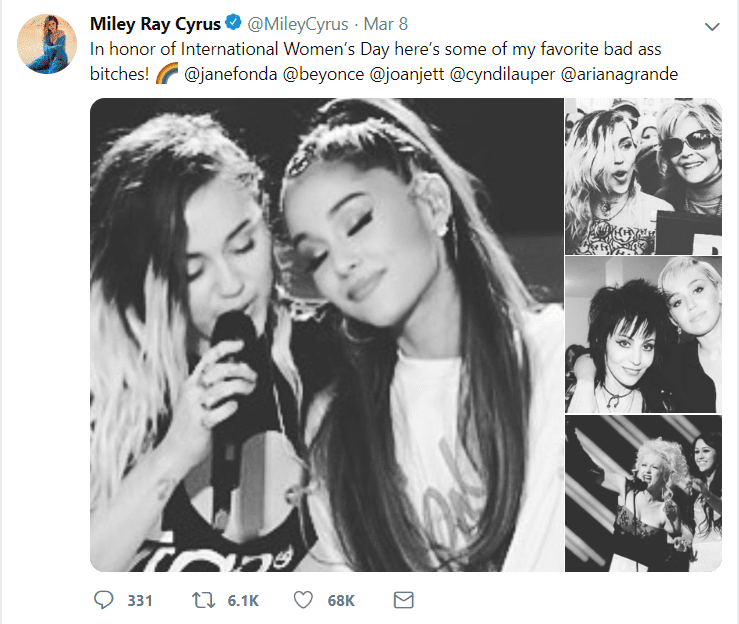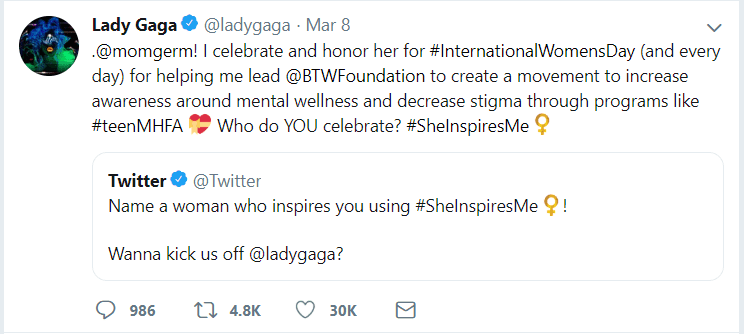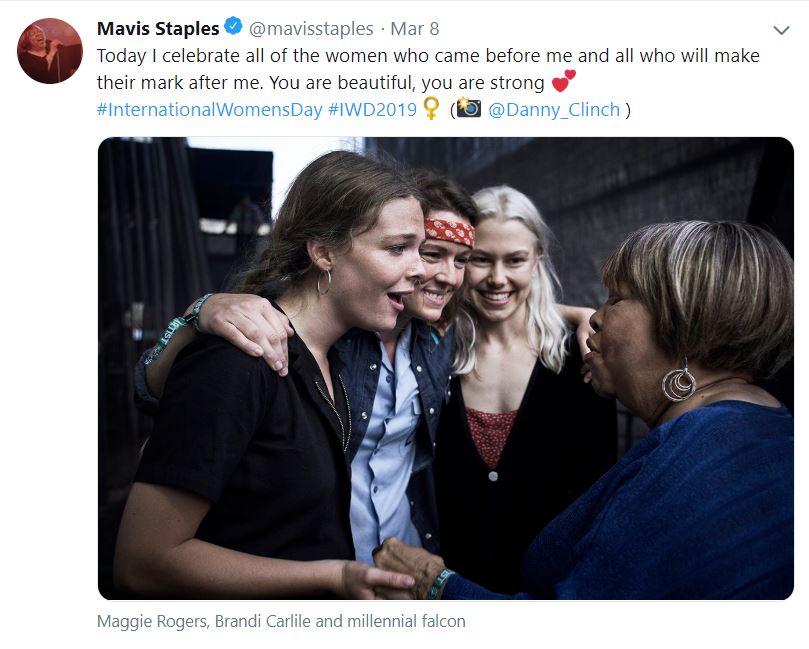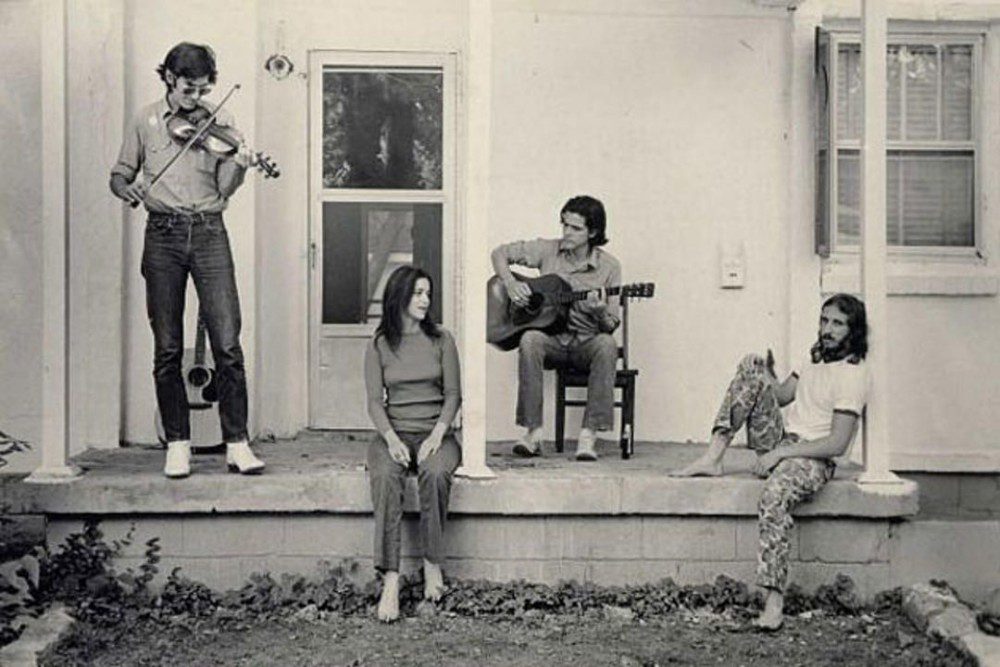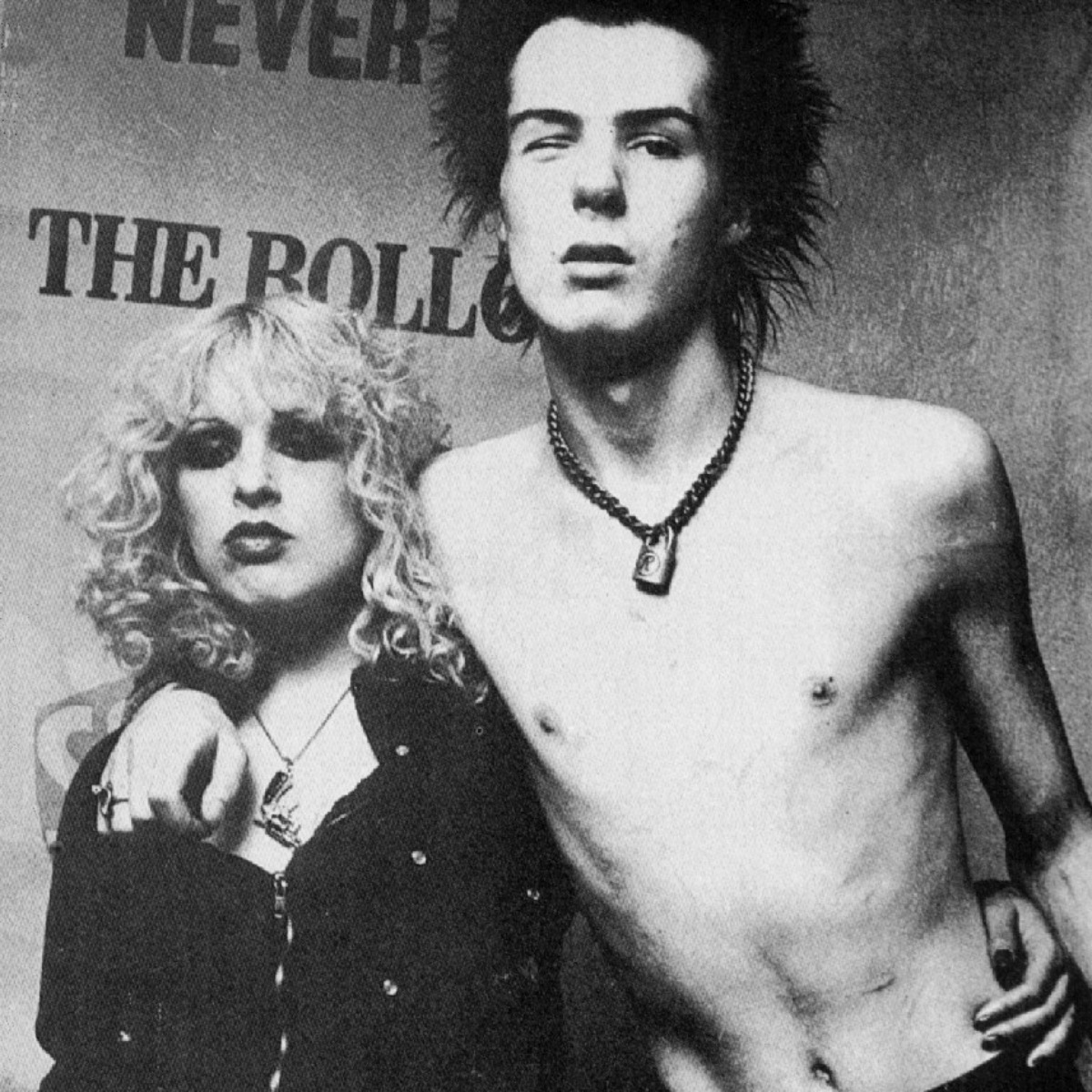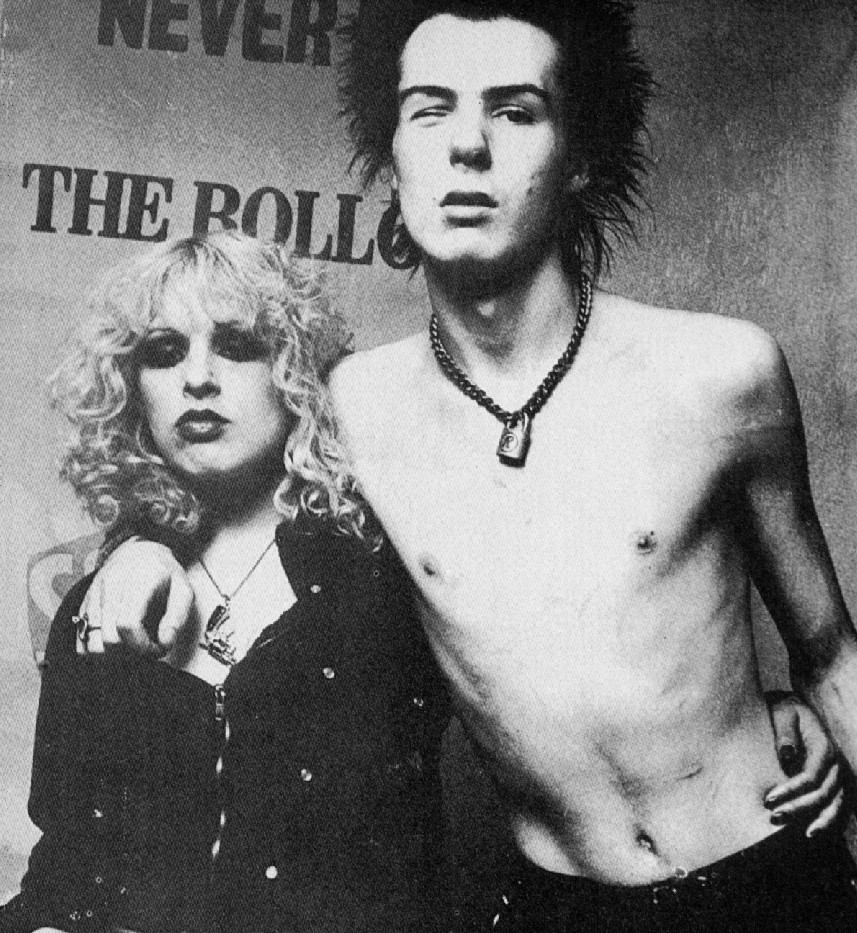

Jo Morris – bandleader, vocalist, and rhythm guitarist for New Orleans-based band St. Lorelei – likes to create worlds with her lyrics. “I tend to write material that’s based on more of an internal world, whether that’s about love or just imagining fictitious environments,” she says. “All I think about when I listen to music is searching for something that really tugs at me, and I like to try to find the same feeling when I write music.”
The band — also consisting of Marcus Bronson (bass, backing vocals), Philip Cooper (keyboards), Alec Vance (guitar), and Steve Walkup (drums and percussion) — will release its debut album Beast this Friday. It paints colorful pictures of a variety of subjects, from nature to famous film scenes.
Much of the album was inspired by listening to the late singer-songwriter Jason Molina; Morris attempted to capture his vivid scene-setting with her lyrics. One of the tracks — the dark, atmospheric, keyboard-driven “Farewell Transmission” — shares a title with a song by his band, Magnolia Electric Co., which features evocative lyrics like “Now we’ll all be brothers of the fossil fire of the sun/Now we will all be sisters of the fossil blood of the moon.” St. Lorelei’s version reads like a letter to the late artist: “I received your farewell transmission/Its echoes are etched across the sky.”
The rest of the album draws from a variety of influences: the dreamy, wistful “Wish” was inspired by The Ronettes, flipping a love song on its head by describing the end of a relationship. In “Night So Dark,” an emotive track reminiscent of The Cranberries, Morris asks with soaring high notes, “Can we make it through another night?”
She remembers writing “Night So Dark” in the winter, as she looked out the window into darkness. “I was just kind of picturing waiting for the light of the moon to break through, and it’s just kind of creating the feeling that I get by watching the moon rise… creating a scene of it in my mind almost like a music video.” She remembers the phrase “too dark to dream” popping into her mind as she looked up at the sky, inspiring the line, “These nights, too dark to dream/So we splay open our hearts and pin them into screens.”
Relationship dysfunction is another overriding theme on the album. In “FOOL,” Morris belts about being deceived by love against discordant jamming, and “Snake Song,” written by Townes Van Zandt, is a haunting and poetic ode to being difficult to love, reminiscent of an old folk song.
“Outside the Green,” a cheery closing track full of harmonies and catchy guitar riffs, has perhaps the quirkiest inspiration: the movie The Matrix. “In that period of time, I had been watching that movie a lot and was just thinking about what constitutes our bodies and what is the corporeal shell — what is stopping us from being one with the elements or even with other people in sharing this same spirit?” says Morris. “I started building it around the stories in The Matrix and Neo’s journey from figuring out when he was in the actual reality and in his perceived reality.”
In her typical songwriting process, Morris brings a melody to her bandmates and describes the feeling she wants to capture, and they craft the sound to fit the mood. “It’s so amazing to be able to play with a band, especially when you’ve played by yourself for so long,” she says. Enlisting the help of engineer Mark Bingham and his barn-like recording studio amid the swamps of Henderson, Louisiana, she used layered vocal harmonies to make the album to sound “sparkling and orchestral.”
Morris formerly sang in the Kentucky Sisters, a duo centered on vocal harmonies and ukulele, while also working on her own material, releasing the EP Ghost Queen in 2017 as a solo artist. Walkup was a fan of the Kentucky Sisters and came to a concert of theirs, and he and Morris began making music together. The band is named after the German folklore figure Lorelei, who jumped into the Rhine river after being betrayed by a lover and transformed into a siren who lured sailors to crash their ships.
During the pandemic, Morris has been using her loop pedal and building songs around vocal harmonies and guitar. She’s currently creating a series of songs lamenting antiquated activities, like using cable TV and VCRs and, nowadays, going to the grocery store without worrying about getting sick. Her goal is to “create a rich world around [everyday things] that you wouldn’t expect” — a skill she’s already clearly mastered on Beast.
Follow St. Lorelei on Facebook and Instagram for ongoing updates.

